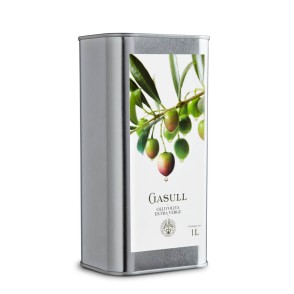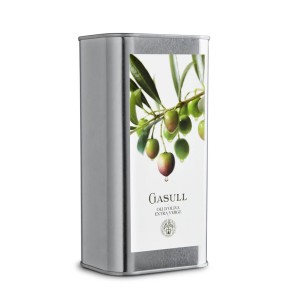Olive Oil
Extra virgin olive oil is a type of olive oil of the highest quality, obtained directly from olives and solely through mechanical procedures. Here's detailed information about this type of oil:
Extraction process: Extra virgin olive oil is obtained exclusively through mechanical procedures, such as pressing or centrifugation, without using heat or chemicals. This process preserves the natural characteristics of the fruit, guaranteeing a high-quality oil.
Quality and flavor: Extra virgin olive oil is characterized by its excellent flavor, aroma, and color. It has a fruity, balanced, and fresh taste, with a slight touch of bitterness and spiciness, which varies depending on the variety of olives and the terroir where they are grown.
Healthy properties: It is known for its numerous health benefits. It is rich in monounsaturated fatty acids, such as oleic acid, which help reduce LDL cholesterol (bad cholesterol) and increase HDL cholesterol (good cholesterol). Additionally, it is a source of antioxidants, which help combat free radicals and prevent cardiovascular diseases and other health problems.
Culinary uses: Extra virgin olive oil is a fundamental element in Mediterranean cuisine and is used both raw and for cooking. It is ideal for dressing salads, marinating meats and fish, frying, baking, among other uses. Its flavor and quality make it an essential ingredient in gourmet cooking.
Grades of quality: Within the olive oil classification, extra virgin is the highest quality, followed by virgin olive oil. To guarantee its quality, extra virgin olive oil must meet strict production and sensory analysis standards.
In summary, extra virgin olive oil is an exceptional product, appreciated for its quality, flavor, and health benefits, and is an ideal choice for those seeking a healthy and tasty diet.




